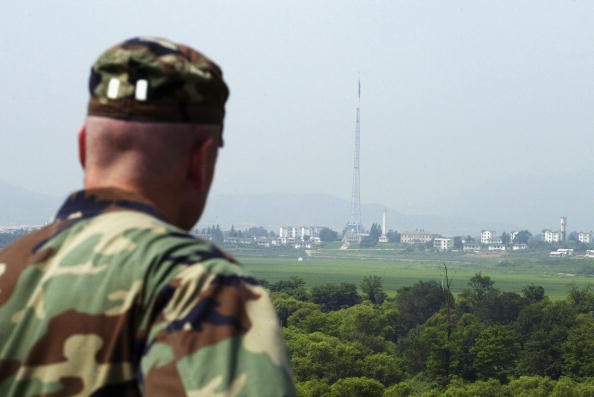China voiced its opposition on Thursday to unilateral sanctions against North Korea, saying it could raise tensions in the region, after the United States issued a new round of sanctions on the isolated country for its latest nuclear and rocket tests.
U.S. President Barack Obama on Wednesday imposed sweeping new sanctions, including banning anyone who does business in North Korea's financial, mining and transport sectors from the global financial system, in an attempt to further isolate North Korea's leadership.
Anyone who violates the sanctions will have their assets frozen by banks, which observers see as potentially stifling North Korea's business ties with China and other countries.
When questioned on whether the sanctions could affect business links between Chinese banks and North Korea, Foreign Ministry spokesman Lu Kang told Reuters that Beijing is "paying attention to" the situation.
"China always opposes any country imposing unilateral sanctions," Lu told reporters at a news briefing in Beijing.
"Under the present situation where the situation on the Korean Peninsula is complex and sensitive, we oppose any moves that may further worsen tensions there," he said, adding that any so-called unilateral sanctions "should neither affect nor harm China's reasonable interests."
Widely seen as North Korea's sole major ally, China disapproves of its nuclear program and has repeatedly called for the Korean Peninsula to be free of nuclear weapons.
While China has expressed its support for stronger U.N. sanctions against North Korea, it has said that repeated sanctions are not the solution and that only the return of Six-Party talks can resolve the dispute over North Korea's weapons program.
Washington's sanctions, which expand an already extensive U.S. blockade of North Korea, prohibit the export of goods from the United States to North Korea.
However, U.S. officials have previously said a blanket trade ban would prove ineffective without a stronger commitment from China.
North Korea conducted a nuclear test on Jan. 6, followed by a rocket launch on Februrary which the U.S. and its allies said utilized prohibited ballistic missile technology.
In response, South Korea and the U.S. are conducting what is reported to be their biggest ever joint military drills, codenamed Key Resolve and Foal Eagle, from March to the end of April.
South Korea Foreign Ministry said on Thursday that the country's top envoy for the stalled Six-Party Talks will fly to China this week to discuss issues regarding North Korea.



























